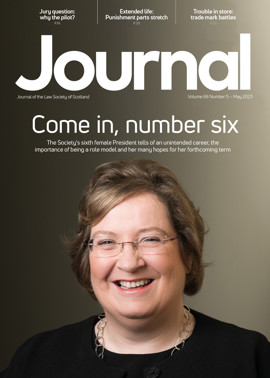Pensions: A question of tax
On 15 March 2023 in his spring Budget, the Chancellor of the Exchequer, Jeremy Hunt, announced significant changes to the tax regime applying to UK-registered pension schemes.
In summary, those key changes (subject to various transitional protections and reliefs) are:
- Lifetime allowance (the overall lifetime allowance on savings across an individual’s registered pension schemes) is to be abolished. This is to be achieved in two steps. Step 1 is the disapplication of the lifetime allowance charge from the start of the 2023-24 tax year. Step 2 will be the removal of the lifetime allowance itself (in the 2022-23 tax year the standard lifetime allowance was £1,073,100) from pensions tax legislation from the start of the 2024-25 tax year.
- A new cap of £268,275 on the maximum pension commencement lump sum (commonly referred to as the tax free lump sum), reflecting 25% of the standard lifetime allowance of £1,073,100.
- Taxation at an individual’s marginal rate of certain authorised payments subject to lifetime allowance charge.
- From the start of the 2023-24 tax year, disapplication of the triggers for losing enhanced or fixed protection from the lifetime allowance charge.
- Increased annual allowance, i.e. the yearly restriction on tax-privileged contributions or accruals in registered pension schemes (from £40,000 in 2022-23 tax year to £60,000 in 2023-24 tax year).
- Increased money purchase annual allowance (from £4,000 in 2022-23 tax year to £10,000 in the 2023-24 tax year).
- Increased tapered annual allowance (with the maximum extent of the taper applying to the annual allowance for high-income individuals rising from £4,000 to £10,000 and the income level at which the taper starts to apply increasing from £240,000 to £260,000, in the respective 2022-23 and 2023-24 tax years).
The rationale
These changes were explained as reflecting among other reasons the wider Government policy to retain workers in the workplace and attract retired workers back into the workplace, particularly those in the NHS. It remains to be seen whether that will be effective, but irrespective of that there are a number of arguments as to why compounding annual and lifetime restrictions on tax efficient pension savings (with all the complexity that results) is no longer necessary or efficient. If one considers how the current position has developed (see table), it seems clear that the huge reduction in the standard annual allowance since its introduction in the 2006-07 tax year, and introduction of the taper, already significantly (and arguably sufficiently) limits the extent to which tax relief is available.
Tax free cash restriction
Interestingly, the changes will not mean payment of any additional amount of tax free lump sum will be possible.
The new cap is also significantly less than that which would have been possible where based upon 25% of some of the more historical standard lifetime allowance amounts (which amounts had been as high as £1.8 million).
It also remains to be seen whether the new cap will be frozen in amount or be indexed in some way. To the extent that there is no increase or indexation, that will mean a real terms reduction. One wonders whether this restriction (indexed or not) rather than the often debated abolition of tax free cash strikes an appropriate balance (see table opposite).
Consequences
Pension scheme administration and communication issues arising from these changes will of course require to be considered by employers and pension trustees/providers, with appropriate action then being taken.
Alternative pension and other arrangements put in place by employers for employees impacted by lifetime and annual allowance issues should also be reviewed. In particular, alternative payment arrangements in lieu of pension contributions (such as cash and share award plans) and the use of excepted group life policies/unregistered pension schemes for the purposes of providing death-in-service benefits should be reviewed and consideration given as to whether they remain fit for purpose.
Party politics
Following the budget, the Labour Party indicated that it intends to reinstate the lifetime allowance if it is elected to government. Such reinstatement could be very complicated, with further transitional protection likely required in relation to the period prior to reinstatement.
Uncertainty and frequent changes (highlighted in the table) make retirement planning and advising on retirement provision extremely difficult. Given its importance, it would be helpful for this issue to be depoliticised and to the extent possible dealt with on the basis of cross-party consensus. It is suspected that may be wishful thinking.
Pension tax relief allowances (£)
| Standard lifetime allowance | Standard lifetime allowance | Tapered annual allowance minimum | AA tapering threshold income | AA tapering adjusted income | Money purchase annual allowance | |
|---|---|---|---|---|---|---|
| 2006/07 | 1,500,000 | 215,000 | — | — | — | — |
| 2007/08 | 1,600,000 | 225,000 | — | — | — | — |
| 2008/09 | 1,650,000 | 235,000 | — | — | — | — |
| 2009/10 | 1,750,000 | 245,000 | — | — | — | — |
| 2010/11 | 1,800,000 | 255,000 | — | — | — | — |
| 2012/13 | 1,500,000 | 50,000 | — | — | — | — |
| 2013/14 | 1,500,000 | 50,000 | — | — | — | — |
| 2014/15 | 1,250,000 | 40,000 | — | — | — | 10,000 |
| 2015/16 | 1,250,000 | 40,000 | — | — | — | 10,000 |
| 2016/17 | 1,000,000 | 40,000 | 10,000 | 110,000 | 150,000 | 10,000 |
| 2017/18 | 1,000,000 | 40,000 | 10,000 | 110,000 | 150,000 | 4,000 |
| 2018/19 | 1,030,000 | 40,000 | 10,000 | 110,000 | 150,000 | 4,000 |
| 2019/20 | 1,055,000 | 40,000 | 10,000 | 110,000 | 150,000 | 4,000 |
| 2020/21 | 1,073,100 | 40,000 | 4,000 | 200,000 | 240,000 | 4,000 |
| 2021/22 | 1,073,100 | 40,000 | 4,000 | 200,000 | 240,000 | 4,000 |
| 2022/23 | 1,073,100 | 40,000 | 4,000 | 200,000 | 240,000 | 4,000 |
| 2023/24 | — | 60,000 | 10,000 | 200,000 | 260,000 | 10,000 |
| Source: House of Commons Library Research Briefing CBP 5901, Pension tax relief: The annual allowance and the lifetime allowance (30 March 2023). |
Perspectives
Features
Briefings
- Civil court: Spotlight on the Sheriff Appeal Court
- Employment: Must do better – the s 23 approach
- Human rights: Crime, detention and mental health issues
- Pensions: A question of tax
- Scottish Solicitors' Discipline Tribunal: May 2023
- Family: The slide rule of grave risk
- In-house: A route to diversity







